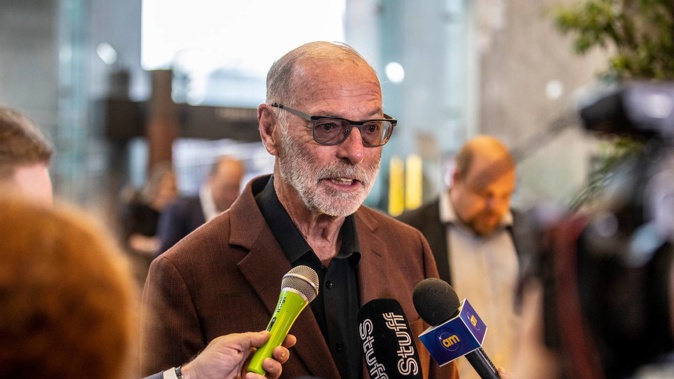
Auckland Mayor Wayne Brown convincingly won the election on the promise that he would fix the city.
In his victory address, he said that he had been given a massive mandate for change.
But how big is that mandate when considering that votes cast for him represent only 15 per cent of the voting-age population of Auckland?
"He's right to say he has a mandate," NZ Herald senior journalist Simon Wilson tells the Front Page podcast.
"The people who voted clearly voted for him. I don't know how else you can construct a mandate except by saying that everyone had the chance to vote and he got a clear working majority."
While Brown has a mandate from the voting public, what that mandate implies isn't quite as clear.
One of the biggest targets during his campaign was Auckland Transport, which Brown said was a source of a great deal of anger for the public - something that's hard to argue against.
Despite Brown's pointed campaigning on this issue, Wilson points out that some of the new Mayor's positions on transport might surprise voters.
"Does that mean he's going to reinstate car parks on arterial roads?" asks Wilson.
"Well, he's not in favour of that. He said it's outrageous that you have clear ways and arterial routes for buses, and there might be three car parks holding everything up. So he's not in favour of that argument."
- New Auckland Mayor Wayne Brown skips media to spend day one in the job with family
- 'We want to take control back': New Auckland Mayor's warnings to council boards
- Simon Wilson: The big job facing new Auckland mayor Wayne Brown
What about Auckland's often-maligned cycleways?
"He's not in favour of ripping out cycleways. He wants cycleways built cheaply, not expensively. Well, that's still cycleways. And if you want them built cheaply on the road, then you can just have a concrete divider. But that might not be what people thought they were voting for when they voted for Wayne."
Wilson adds that those frustrated by speed bumps might struggle to get those removed under the new leadership.
"He's not going to spend money undoing any infrastructure that has already been built. So if you do have speed bumps and if you do have raised crossings and if you do have cycleways, I don't think they're going to be taken out."
Throughout his campaign, Brown was very effective at painting himself as the change agent looking to challenge the status quo.
What that change might look like is still unclear at this stage, but Brown will need the support of his Council if he is to get any of his ideas across the line.
"He's got to build a team," says Wilson.
"That's the first thing he needs to do. He got to build a working team with councillors, council support and trust and support among senior staff and CCOs (Council-controlled organisations). We'll make enormous progress in this city if there's a real sense we're all in it together."
A Mayor who doesn't have support from their council will generally have a tough time in terms of changing or fixing anything.
"We've seen that in Wellington with Andy Foster last term, where he really struggled with the council who were not on board with a lot of things he wanted to do or he wasn't on board with what they wanted to do," says Wilson.
The Council Brown will work with leans slightly to the right by a margin of 12 to nine (including his vote). This is all, however, still subject to the special votes being tallied.
In his corner are likely to be John Watson, Wayne Walker, Christine Fletcher, Sharon Stewart, Maurice Williamson, Daniel Newman, Mike Lee, Greg Sayers, Ken Turner, Andy Baker and Desley Simpson.
But left-leaning councillors are also likely to want to engage with Brown, rather than battle him from the start. That group includes Julie Fairey, Kerrin Leoni, Shane Henderson, Alf Filipaina, Fuli Lotu, Angela Dalton, Josephine Bartley, Richard Hills and Chris Darby.
"If he decides to go to war with people, it will be slower and harder and he'll get less done. I'm sure he understands that."
Few councillors have declared a position in favour or against Brown so far - and relationships will likely be formed in the coming weeks. We will only then start to get a clearer picture of whether Brown's intentions for fixing Auckland correspond with those he hopes to work with.
- The Front Page is a daily news podcast from the New Zealand Herald, available to listen to every weekday from 5am.
- You can follow the podcast at iHeartRadio, Apple Podcasts, Spotify, or wherever you get your podcasts.
Take your Radio, Podcasts and Music with you









